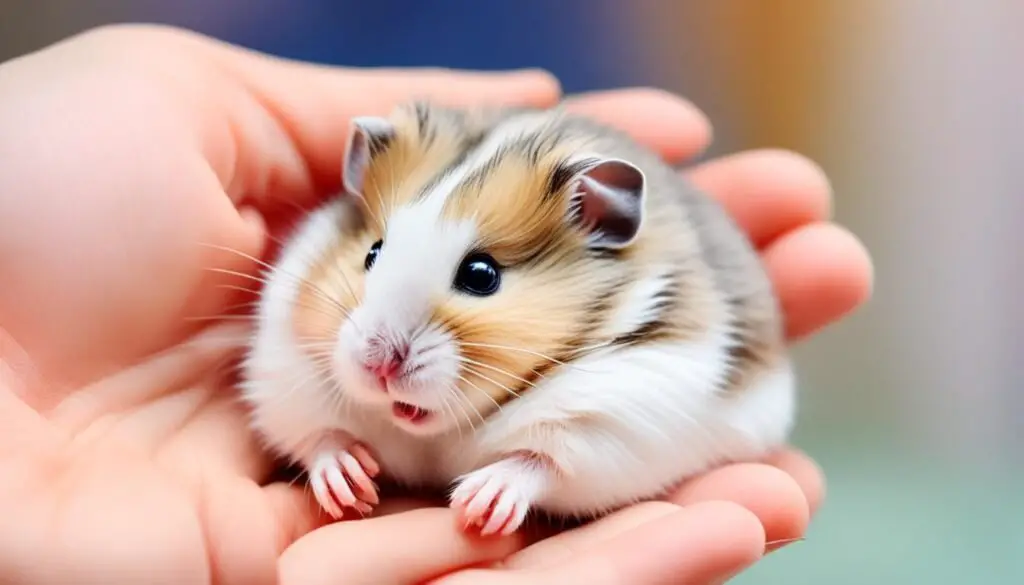Imagine coming home after a long day, weary and in need of love and companionship. As you enter your living room, a joyful ball of fur scurries across the floor towards you. Your heart swells with warmth as you scoop up your hamster and feel their tiny paws tickle your hand.
But what if this joyful reunion doesn’t happen? What if your hamster remains distant and uninterested, untouched by the bond you so desperately long for?
Hamsters, like any other pet, crave social interaction and affection. Neglecting their bonding and socialization can have devastating consequences, not only for the well-being of your furry friend but also for your own fulfillment as a pet owner.
Proper care and attention are at the heart of ensuring a happy and healthy hamster. From their diet and habitat to their daily routine, every aspect of their care plays a vital role in nurturing a strong bond and fostering positive interactions.
In this article, we will explore the importance of hamster care, bonding, and socialization, and delve into the steps you can take to create a deeper and more meaningful connection with your furry companion. Are you ready to embark on this journey of love and companionship? Let’s dive in!
The Importance of Holding Your Hamster
Regular handling of your hamster is crucial for their overall well-being. It not only allows them to become familiar with human interaction but also reduces stress and helps prevent behavioral issues. When you hold your hamster, you are providing them with socialization and mental stimulation, which are essential for their health and happiness.
Hamsters are naturally curious and active animals. By regularly handling them, you are allowing them to explore new environments, which can have a positive impact on their behavior. Handling also helps them feel more secure in their surroundings and less anxious or fearful of their human caregivers.
Furthermore, regular handling provides an opportunity for you to monitor your hamster’s health. By spending time holding and observing them, you can quickly identify any changes in their appearance, behavior, or eating habits. This allows you to proactively address any potential health issues and seek veterinary care if necessary.

When holding your hamster, it’s important to ensure their safety and comfort. Use both hands to gently support their body, ensuring that they feel secure and stable. Avoid sudden movements or loud noises that may startle them.
Remember, each hamster has a unique personality and comfort level with handling. Some may enjoy being held for longer periods, while others may prefer shorter interactions. Always pay attention to their signals and respect their boundaries.
In conclusion, regular handling of your hamster is crucial for their well-being. It allows them to become familiar with human interaction, reduces stress, and helps prevent behavioral issues. Additionally, it provides an opportunity to monitor their health and ensures their safety and comfort. So, make sure to spend quality time holding and bonding with your hamster to strengthen your relationship and provide them with the care they deserve.
Creating a Bond with Your Hamster
Building a strong bond with your hamster is crucial for their well-being and your relationship. It requires patience, consistency, and gentle handling. Regular interactions with your hamster will help them feel comfortable and secure in your presence.
Start by handling your hamster for short periods each day, gradually increasing the duration over time. Use slow and gentle movements, allowing them to sniff and explore your hand at their own pace. This will help build trust and familiarity.
Additionally, offering treats during handling sessions can further reinforce the positive experience. Hamsters have a keen sense of smell, so choose treats with an enticing aroma to capture their interest. Treats like fresh fruits or small pieces of vegetables can be a great option.
Remember to talk softly to your hamster during interactions. They may not understand the words, but your soothing voice will help them associate your presence with a sense of calm. Spending time near their cage, reading a book or talking on the phone, can also help them become more accustomed to your presence over time.
Creating a safe and enriched environment for your hamster is equally important in fostering bonding. Provide a spacious and comfortable cage with plenty of hiding spots, toys, and different textures for them to explore. This will encourage positive interactions, mental stimulation, and overall well-being.
In conclusion, building a bond with your hamster requires patience, gentle handling, and providing a safe environment. By investing time and effort in their socialization and interaction, you will strengthen your bond and create a loving and trusting relationship with your furry friend.
